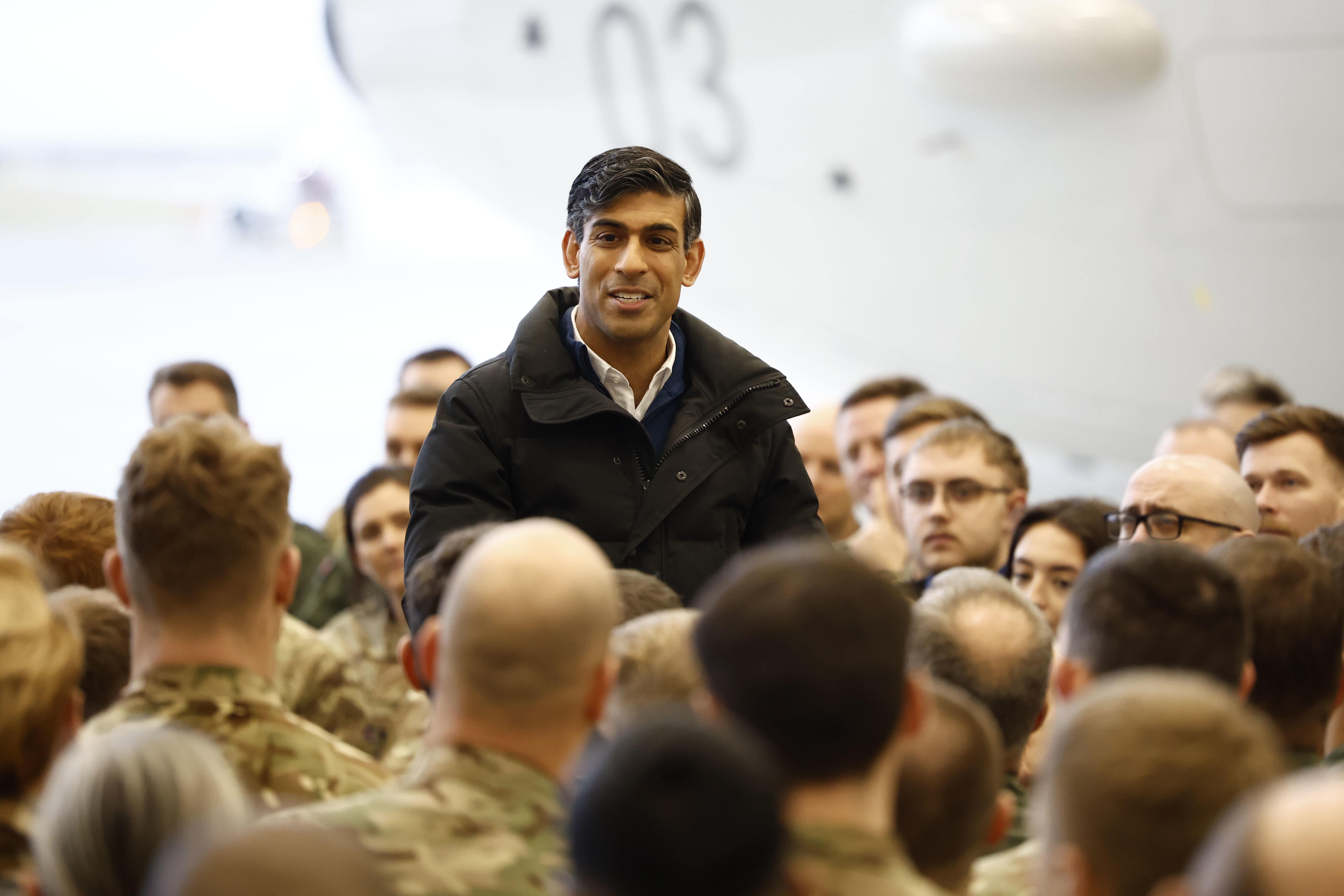National service plan is a host of contradictions
Editorial: It is not at all clear that there would be support in the UK for all 18-year-olds to serve, in whatever capacity, unless national security were threatened

The prime minister’s eye-catching pledge to introduce a version of national service for 18-year-olds as his opening gambit in the election campaign plays to a sentiment deeply rooted in sections of the Conservative Party, but also has wider appeal. That the world is a dangerous place, that the nation is not as well protected – including by its armed forces – as it once was, and that young people could do with toughening up are all common themes in the national conversation.
The enthusiasm for volunteering in the early stages of the pandemic, and the scale of volunteer help provided to Ukrainian refugees, also showed the extent of potential that remained untapped in this country, as many young people also rose to the challenge of a cause greater than themselves. Launching an organised effort to harness more of that potential for the national good is a laudable aspiration.
A closer look at what Rishi Sunak has outlined, however, shows a host of contradictions that make such a scheme unlikely to fly, and perhaps counterproductive if it did. Granted, he said that the details would be hammered out by a commission set up for the purpose, though it is hard to see much of this working – still less appealing to those 18-year-olds it is designed for.
One major limitation is that it is not actually national service as the term is usually understood. There would be a choice between a year’s placement in some branch of the military, and 25 days of voluntary service for the NHS or a charity – the RNLI was mentioned. Crucially, there would be no penalties for opting out. However it is dressed up, this makes service voluntary. It is doubtful that peer pressure would alter that.
The voluntary principle makes it akin to a national version of David Cameron’s National Citizen Service, designed for 18- to 22-year-olds – whose impact has probably been rather less than he had hoped – or again, to the thoroughly admirable (but relatively small-scale) Duke of Edinburgh’s Award scheme. Any project for a form of national service designed with a view to big objectives, such as fostering “a shared sense of purpose”, as Sunak put it, will fall short if it does not involve all.
Volunteers, to a large extent, select themselves. How many of those 18- to 25-year-olds currently not in education or employment would have chosen at age 18 to enter one of the proposed new schemes? And how many of those currently heading to university would choose a year in the military or a year of weekend volunteering over the part-time working or gap year choices they make at present?
Of course, introducing, or reintroducing, national service for all is a very big decision for any government to take – even if there is a choice between military and civilian service, as there is in many countries that have done so. And it is not at all clear that there would be support in the UK for all 18-year-olds to serve, in whatever capacity, unless national security were threatened. The prime minister could respond that his proposals are, in a way, a test of the public mood. But it is not just the public that would have to sign up.
Those organisations receiving the volunteers – or draftees, if service were compulsory – might also have something to say about it. The military has not in the past been particularly receptive to the reintroduction of conscription, on the grounds that the technological requirements mean that a modern military has to be professional. On the other hand, senior officers have recently lamented the lack of war preparedness on the part of UK civilians, so there could perhaps be a middle way.
The NHS and others have also been wary of untrained volunteers encroaching on professional territory, not to mention the practical liability they could represent. To absorb large numbers of 18-year-olds on an annual basis would be a lot to ask of already stretched public and charitable services.
As for the young people themselves, there could well be an appetite for more volunteering opportunities, but also a resistance to what might be seen as employers getting work on the cheap. A year of weekends helping out with the bedpans may not have the same attraction.
It is understandable that, with the Conservatives lagging so badly in the polls and with Labour already targeting the youth vote, Rishi Sunak should be looking for a big idea that would at once compete with this appeal and persuade jaded voters to look again at his party. This gamble on a “join up, but only if you want to” national service is not it.



Join our commenting forum
Join thought-provoking conversations, follow other Independent readers and see their replies
Comments